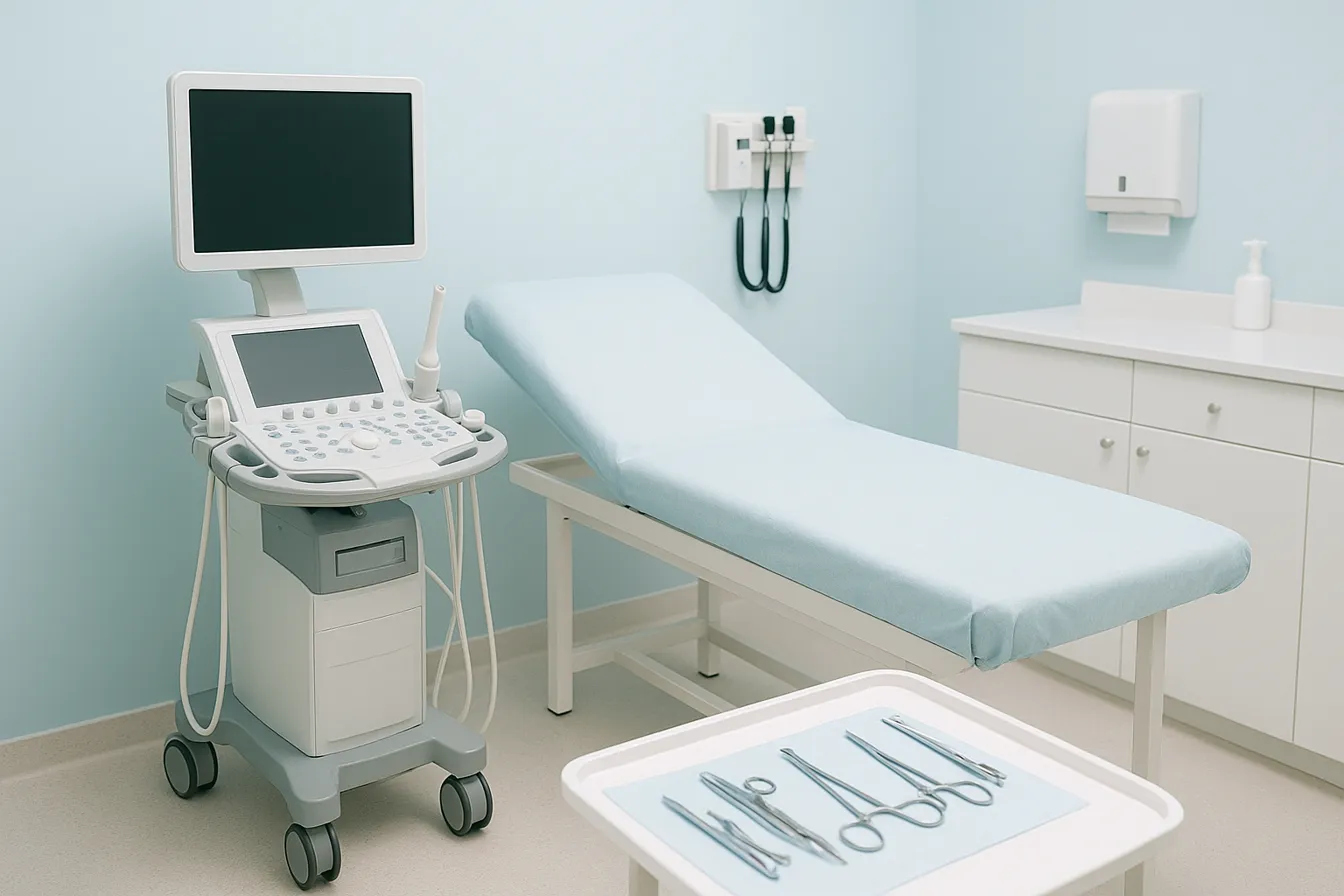Navigating Women's Health: A Comprehensive Guide Across Life Stages

Understanding Menopause and the Role of Lifestyle Support
What is Menopause?
Menopause marks the end of a woman's reproductive years, defined by no menstrual periods for at least 12 consecutive months. It usually occurs around age 51-52, though timing varies among individuals. The transition includes three stages: perimenopause (which starts in the 40s with fluctuating hormones), menopause itself, and postmenopause—the years after.
Common Symptoms and Health Risks
Women often experience symptoms such as hot flashes, night sweats, vaginal dryness, mood changes, sleep disturbances, and joint pain. These result primarily from declining estrogen and progesterone. There is also an increased risk of health issues including osteoporosis, heart disease, urinary problems, and mental health changes during and after menopause.
Managing Menopause with Lifestyle Changes
Lifestyle adaptations play a crucial role in easing symptoms and supporting overall health. Eating a balanced diet rich in calcium and vitamin D strengthens bones. Regular weight-bearing exercise helps maintain bone density, cardiovascular health, and mood stability. Avoiding smoking and limiting alcohol also reduce health risks. Relaxation methods like yoga and mindfulness help manage stress and improve sleep quality. Engaging social support and consulting healthcare providers enable tailored, effective menopause care.
Nutritional Strategies to Support Bone and Overall Health During Menopause

Why Are Calcium and Vitamin D Essential During Menopause?
During menopause, the decline in estrogen levels accelerates bone loss, increasing osteoporosis risk. Calcium and Vitamin D Intake play crucial roles in maintaining bone density and overall skeletal health. Calcium is a primary mineral for bone strength, while vitamin D enhances calcium absorption in the body.
Which Foods Provide Calcium and Vitamin D?
Incorporating calcium-rich foods for bone health is vital. Dairy products like milk, yoghurt, and kale for osteoporosis prevention offer a significant calcium source alongside phosphorus, potassium, magnesium, and vitamins D and K.
Leafy greens such as kale and broccoli also contribute to Calcium and Nutrients from Dairy Products. Fatty fish like salmon provide vitamin D and omega-3 fatty acids, essential for bone and heart health.
How Do Supplements and Sunlight Exposure Help?
Seasonal variation in sunlight, like in Queens, NY, may limit natural vitamin D synthesis. Vitamin D and menopause supplements are recommended, especially during months with less sun exposure, to ensure optimal bone health.
Dietary Patterns That Support Menopause Health
Following a Mediterranean diet for menopause—rich in fruits, vegetables, whole grains, lean proteins, and healthy fats—supports cardiovascular wellness and may reduce menopausal symptoms. This pattern provides balanced nutrition that aids in weight management and inflammation reduction.
Why Limit Processed Foods?
Highly processed foods often contain excessive salt and refined sugars that can decrease bone density and promote weight gain, potentially worsening menopause symptoms.
Maintaining a balanced intake of whole, nutrient-dense foods supports healthy metabolism and bone preservation during menopause.
Exercise and Physical Activity: Cornerstones of Menopause Symptom Relief and Health Maintenance

Types of Beneficial Exercise for Menopause
Engaging in a mix of exercise types can significantly relieve managing menopause symptoms and support overall health. Weight-bearing activities such as walking, running, and dancing promote bone strength and reduce osteoporosis risk. Resistance training using weights enhances muscle mass, which tends to decline during menopause. Aerobic exercises like brisk walking and cycling improve cardiovascular fitness, a crucial factor as heart disease risk rises after menopause.
Recommended Duration and Intensity
Experts recommend at least 150 minutes of moderate-intensity exercise weekly or 75 minutes of vigorous activity to reap full benefits. This amount supports cardiovascular health, maintains a healthy weight, and helps reduce vasomotor symptoms like hot flashes.
Benefits on Bone Density, Cardiovascular Health, Mood, and Sleep
Regular exercise during menopause helps maintain bone mineral density, lowering fracture risk. Cardiovascular health is preserved by improving blood vessel function and reducing cholesterol. Exercise also boosts endorphin levels, improving mental wellbeing in menopause and alleviating anxiety and depression common in menopause. Additionally, physical activity enhances sleep quality, addressing common sleep disturbances faced during this life stage.
Managing Weight to Reduce Symptom Severity
Maintaining a healthy weight is vital since excess weight can worsen symptoms like hot flashes and night sweats. Weight loss of even 10% can reduce the severity of these symptoms. Regular exercise combined with a balanced diet during menopause supports sustainable weight management.
Specific Activities: Yoga, Tai Chi, and Dancing
Mind-body exercises such as yoga and tai chi for relaxation provide relaxation benefits, reducing stress and improving mood and sleep routines for menopause. Dancing combines aerobic and weight-bearing activity, offering cardiovascular benefits while supporting bone health and providing social engagement.
Prioritizing tailored, consistent physical activity is essential for managing menopause effectively and promoting long-term well-being.
Managing Menopausal Symptoms Through Environmental and Behavioral Adjustments

Strategies to Reduce Hot Flashes and Night Sweats
Managing Reducing hot flushes and night sweats involves several practical environmental adjustments. Wearing light, breathable clothing and dressing in layers can help regulate body temperature. Keeping living and sleeping spaces cool with fans or air conditioning, taking cool showers, and using cold packs are effective ways to reduce heat discomfort.
Avoiding Triggers Such as Spicy Food, Caffeine, Smoking, and Alcohol
Certain foods and habits can trigger or worsen hot flashes. Avoiding spicy foods, caffeine, and hot drinks has been shown to help some women manage symptoms. Quitting smoking during menopause is especially important as tobacco use is linked to more severe menopause symptoms and early menopause. Limiting alcohol during menopause supports overall symptom management and health.
Importance of Adequate Restful Sleep and Sleep Hygiene
Sleep disturbances are common during menopause, but establishing a consistent Sleep routines for menopause can improve restfulness. Creating a cool bedroom environment supports better sleep. Reducing screen time before bed and avoiding stimulants like caffeine in the evening can also promote sleep quality.
Relaxation Techniques Including Meditation and Cognitive Behavioral Therapy (CBT)
Stress management via relaxation methods is beneficial during menopause. Meditation to manage menopause symptoms, yoga, and tai chi can enhance mental wellbeing in menopause and mitigate symptoms. cognitive behavioral therapy (CBT) for menopause has demonstrated effectiveness in reducing mood swings, anxiety, and sleep issues related to menopause, helping women cope better with their experiences.
Role of Social Support and Communicating Menopause Experiences
Talking openly with family, friends, or support groups who understand menopause can provide emotional relief and valuable coping strategies. Connecting with others facing similar changes fosters resilience and reduces feelings of isolation. For emotional support during menopause, open communication is key.
Adopting these environmental and behavioral adjustments equips women to manage menopausal symptoms more comfortably and maintain quality of life.
Addressing Vaginal Health and Sexual Wellness in Menopause

Common Issues Like Vaginal Dryness Treatments and Discomfort
Vaginal dryness and discomfort are frequent challenges during menopause, often resulting from decreased estrogen levels. These symptoms can affect comfort and intimacy, impacting overall quality of life.
Over-the-Counter Treatments
Many women find relief with over-the-counter using vaginal moisturizers and lubricants, especially water-based products when using condoms. These options help restore moisture and ease discomfort during sexual activity.
Medical Options Such as Hormone Replacement Therapy for Vaginal Dryness and Vaginal Estrogen
For moderate to severe symptoms, medical therapies including hormone replacement therapy options (HRT) and vaginal estrogen treatments—available as creams, pessaries, gels, or rings—may be recommended. These therapies effectively rejuvenate vaginal tissues and improve elasticity and lubrication.
Importance of Consulting Healthcare Providers for Menopause Care
It's essential to consult healthcare professionals before beginning any treatment to ensure safety, appropriate use, and tailored care. Providers can offer personalized advice and monitor treatment progress.
Sexual Health as a Component of Overall Well-being
Sexual wellness is a vital aspect of overall health and quality of life during and after menopause. Addressing vaginal health concerns proactively enhances emotional well-being and intimate relationships, supporting holistic care for menopausal women.
Avoiding Risk Factors and Embracing Comprehensive Care for Long-term Wellbeing

How do smoking and alcohol use impact menopause and related health risks?
Smoking is associated with earlier onset of menopause and intensifies symptoms such as hot flashes, making management more difficult. Additionally, smoking increases health risks like osteoporosis and cardiovascular disease, which are already a concern during and after menopause. Alcohol use, particularly excessive consumption, also raises the risk of breast cancer and can worsen menopausal symptoms. Limiting alcohol intake to no more than one serving per day is recommended for safer menopause management.
Why are regular health screenings essential during menopause?
Menopause accelerates risks for bone density loss and cardiovascular disease. Regular bone density screenings help detect osteoporosis early, enabling timely intervention. Cardiovascular assessments are also crucial as estrogen decreases, raising heart disease risk. Such screenings, advised especially for women aged 50 and above, support long-term health and prevent serious complications.
When and why should women consult specialized healthcare providers?
Menopause experiences vary widely, and personalized care is important. Consulting menopause specialists or certified practitioners ensures tailored treatment plans addressing physical, emotional, and psychological needs. These experts guide safe use of therapies like hormone replacement and complementary treatments, and help women navigate symptom management effectively.
How can mental health be supported during menopause?
Mood swings, anxiety, and sleep disturbances commonly occur during menopause. Support strategies include therapy options like cognitive behavioral therapy (CBT) for menopause, mindfulness practices, relaxation techniques such as yoga and meditation, and maintaining social connections. These practices promote emotional wellbeing and contribute to better symptom management.
How can women remain empowered and positive throughout menopause?
Understanding menopause as a natural life stage and proactively managing symptoms fosters empowerment. Embracing lifestyle changes for menopause—balanced nutrition, exercise, stress management—and seeking support creates a positive outlook. Accessing expert care and educational resources helps women feel in control, enhancing quality of life during the menopausal transition and beyond.
Embracing Lifestyle Changes for a Healthy and Positive Menopause Journey
Lifestyle Modifications to Ease Menopause
Adopting healthy lifestyle habits is crucial for managing menopause symptoms effectively. Key changes include maintaining a balanced diet rich in calcium and vitamin D to support bone health; engaging in regular weight-bearing and aerobic exercises such as walking, dancing, or yoga; and ensuring adequate sleep and stress management through mindful practices.
Avoiding smoking and limiting alcohol intake further benefit overall health. Simple environmental adjustments like wearing light clothing and using fans can reduce hot flush discomfort. Psychological well-being can be supported through relaxation techniques and cognitive behavioral therapy when mood swings or anxiety occur.
Personalized Support for Women
Given the varied experiences of menopause, seeking individualized guidance from healthcare professionals is highly recommended. Specialists can tailor treatment plans that include lifestyle strategies, hormone therapy options, or non-hormonal interventions suited to each woman’s specific needs and health profile.
Women in Queens, NY, and beyond can access comprehensive menopause care that combines medical expertise with patient-centered support, fostering empowerment and well-being during this life stage.
Looking Ahead: Enhancing Quality of Life
Menopause marks a natural transition that, with the right support and lifestyle choices, can be embraced positively. Advances in personalized care and growing awareness of holistic management promise improved symptom control and health outcomes.
By adopting proactive lifestyle changes and connecting with knowledgeable providers, women can navigate menopause with confidence, maintaining vitality and quality of life well into their postmenopausal years.





.png)